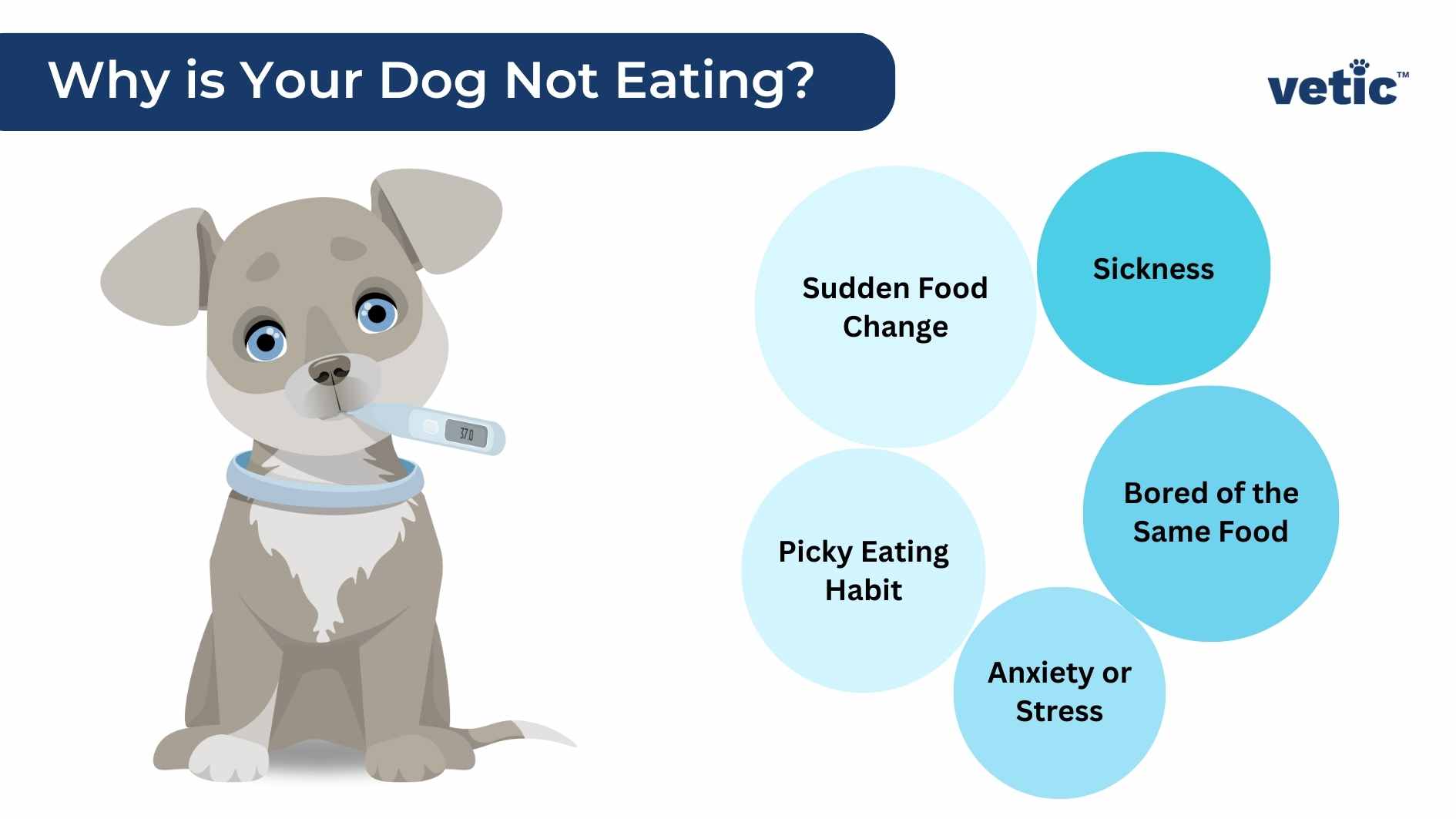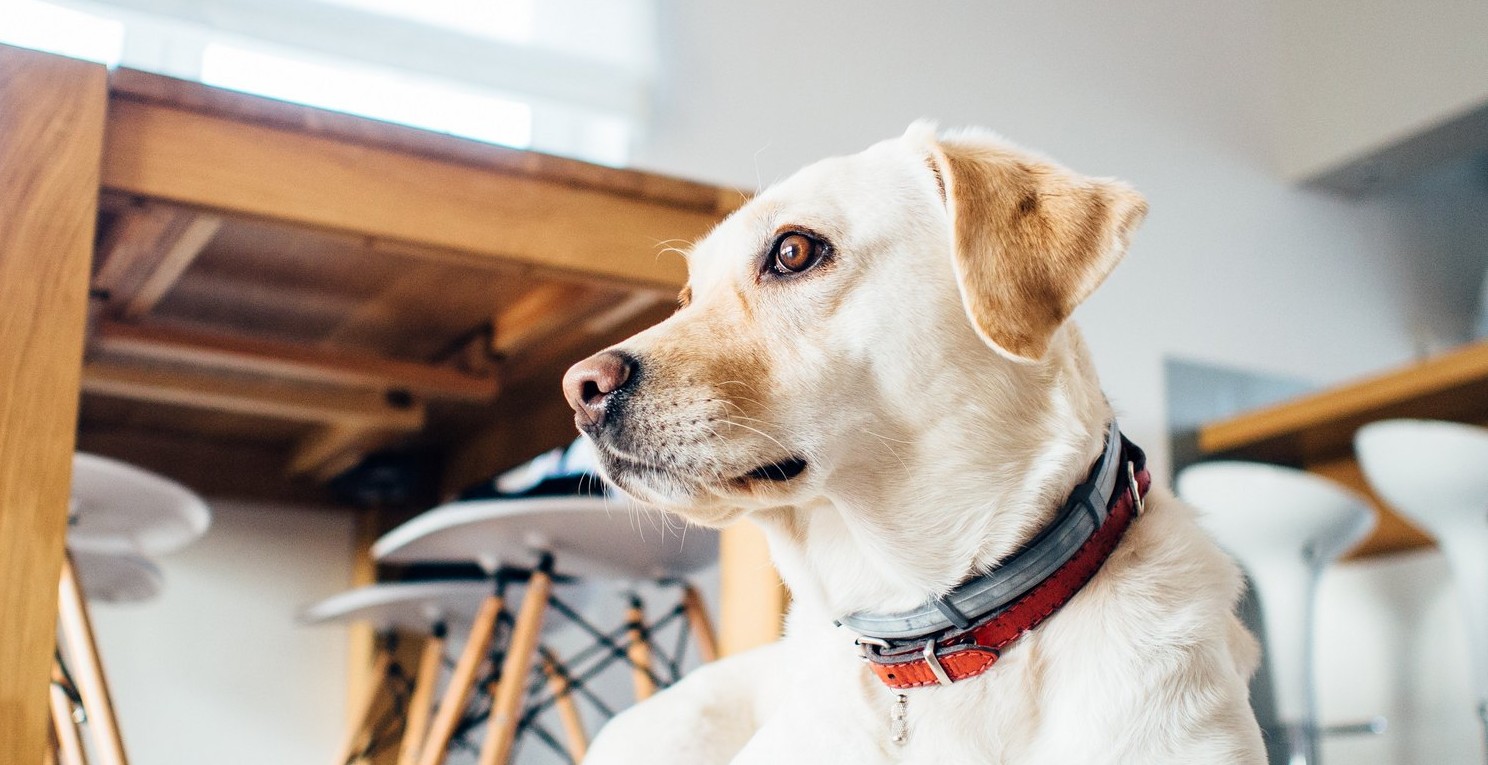There are several reasons why your Labrador puppy may not be eating. Common issues include stress, illness, or changes in routine.
Labrador puppies are known for their hearty appetites, so a sudden loss of interest in food can be concerning. Factors like stress from new environments, recent vaccinations, or changes in the household can impact their eating habits. Illness may also play a role, ranging from minor digestive issues to more serious health concerns.
It’s essential to observe your puppy for other symptoms, such as lethargy or vomiting. A consistent feeding schedule and a calm environment can help. If the issue persists, consulting a veterinarian is crucial to ensure your puppy’s health and well-being.

Credit: m.youtube.com
Common Reasons Puppies Lose Appetite
A puppy not eating can worry any pet owner. Many factors contribute to this issue. Understanding these reasons helps in addressing the problem effectively.
Teething Discomfort
Puppies go through teething stages, usually between three to six months. This process can cause discomfort in their gums. Pain may lead to a loss of appetite.
- Gums may feel sore or tender.
- Chewing may become a priority over eating.
- Some puppies may refuse hard kibble.
Look for signs of teething:
- Excessive drooling
- Chewing on furniture or toys
- Frustration while eating
Stressful Environments
A stressful environment can also cause a puppy to stop eating. Changes in surroundings can affect their mood. Common stressors include:
| Stress Factor | Effect on Appetite |
|---|---|
| Moving to a new home | Puppy may feel insecure and refuse food |
| New family members or pets | Can lead to anxiety and loss of appetite |
| Loud noises | Fear can suppress hunger |
Monitor your puppy’s behavior during stressful times. Adjusting their environment may help restore their appetite.
Health Issues To Watch For
Not eating can signal health problems in your Labrador puppy. Pay attention to symptoms. Early detection can lead to better outcomes. Here are key health issues to monitor.
Parasitic Infections
Parasitic infections are common in puppies. They can cause loss of appetite. Watch for these signs:
- Weight loss
- Vomiting
- Diarrhea
- Bloated abdomen
Common parasites include:
| Parasite | Symptoms |
|---|---|
| Worms | Weight loss, bloating, vomiting |
| Giardia | Diarrhea, weight loss, poor coat |
| Coccidia | Diarrhea, dehydration, lethargy |
Consult a vet if you notice these symptoms. Prompt treatment can help.
Serious Illness Signs
Some serious illnesses can cause a loss of appetite. Look for these warning signs:
- Persistent vomiting
- Severe lethargy
- Fever
- Rapid breathing
Other signs to consider:
- Change in behavior
- Excessive thirst
- Persistent diarrhea
These symptoms may indicate serious conditions. Seek veterinary care immediately. Early diagnosis increases the chance of recovery.
The Importance Of Diet Quality
A high-quality diet is essential for your Labrador puppy’s health. Good nutrition supports growth, energy, and overall well-being. Poor diet can lead to health issues. Puppies need balanced meals to thrive.
Choosing The Right Puppy Food
Selecting the right puppy food can be overwhelming. Focus on these key factors:
- Life Stage: Choose food specifically for puppies.
- Ingredients: Look for real meat as the first ingredient.
- Nutritional Value: Ensure it meets AAFCO standards.
- Grain vs. Grain-Free: Consider your puppy’s digestive needs.
Consider this table for a quick comparison:
| Type of Food | Pros | Cons |
|---|---|---|
| Dry Kibble | Convenient, promotes dental health | Less moisture |
| Canned Food | Higher moisture, palatable | Higher cost, shorter shelf life |
| Raw Diet | Natural ingredients, less processing | Risk of bacteria, requires careful handling |
Avoiding Harmful Foods
Some foods can harm your puppy. Avoid these common items:
- Chocolate: Toxic to dogs.
- Onions and Garlic: Can damage red blood cells.
- Grapes and Raisins: Can cause kidney failure.
- Xylitol: Found in sugar-free items; very toxic.
Check labels carefully. Never feed table scraps. Stick to puppy-specific food.

Credit: vetic.in
Creating A Positive Feeding Routine
Establishing a positive feeding routine is essential for your Labrador puppy. A consistent schedule helps your puppy feel secure. It also encourages healthy eating habits. Here are key strategies to create a routine that works.
Scheduled Feeding Times
Set regular feeding times each day. This helps your puppy know when to expect food. Puppies thrive on routine. Here are some tips:
- Feed your puppy twice a day.
- Choose specific times, like 8 AM and 6 PM.
- Stick to the schedule even on weekends.
Use the following table to track your feeding schedule:
| Day | Breakfast Time | Dinner Time |
|---|---|---|
| Monday | 8:00 AM | 6:00 PM |
| Tuesday | 8:00 AM | 6:00 PM |
| Wednesday | 8:00 AM | 6:00 PM |
| Thursday | 8:00 AM | 6:00 PM |
| Friday | 8:00 AM | 6:00 PM |
| Saturday | 8:00 AM | 6:00 PM |
| Sunday | 8:00 AM | 6:00 PM |
Adjust the amounts based on your puppy’s needs. Consult your vet for advice on portion sizes.
Encouraging Eating Through Play
Make mealtime fun and engaging. Use play to encourage your puppy to eat. Here are a few ideas:
- Use a toy to entice your puppy to the food bowl.
- Hide treats in the food to create excitement.
- Incorporate a game before meals to build appetite.
Try these activities:
- Play fetch in the yard.
- Have a mini obstacle course.
- Engage in tug-of-war with a favorite toy.
After playtime, your puppy may feel hungrier. This increases the chance of eating.
When To Consult A Veterinarian
Noticing your Labrador puppy not eating can be concerning. Understanding when to seek help is crucial. Some reasons may be temporary, while others require immediate attention.
Persistent Appetite Loss
If your puppy refuses food for more than 24 hours, take action. Prolonged appetite loss can indicate serious health issues.
Consider these factors:
- Age of the puppy.
- Duration of appetite loss.
- Previous health issues.
Here’s a quick reference table:
| Time Without Eating | Action Needed |
|---|---|
| Less than 12 hours | Monitor closely. |
| 12 to 24 hours | Consult a vet for advice. |
| More than 24 hours | Visit the veterinarian immediately. |
Behavioral Changes To Observe
Behavioral changes can provide hints about your puppy’s health. Look for these signs:
- Increased lethargy or tiredness.
- Excessive whining or barking.
- Changes in bathroom habits.
- Unusual aggression or anxiety.
Monitor these changes closely. Report them to your veterinarian. Early intervention can prevent serious issues.

Credit: www.vets-now.com
Conclusion
Understanding why your Labrador puppy is not eating is crucial for their health. It could be due to stress, illness, or simply pickiness. Observing their behavior and consulting a vet can help identify the issue. A happy, healthy puppy is more likely to enjoy their meals.
Act promptly to ensure their well-being.
